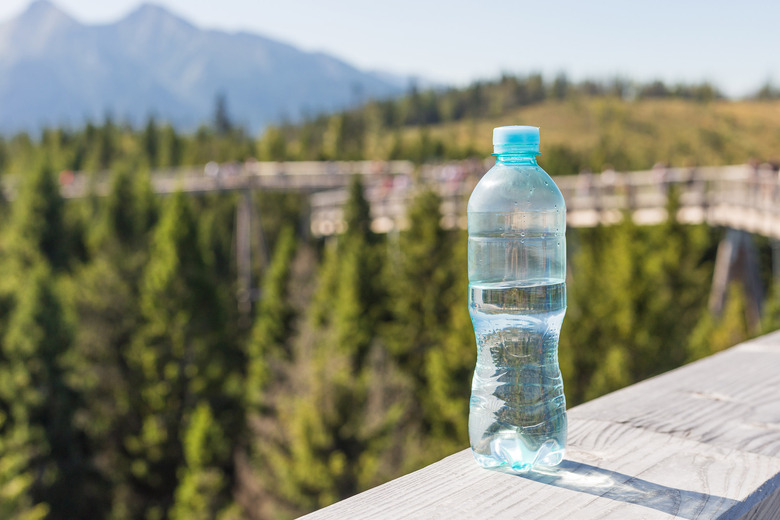Forever Chemicals Were Found In 99% Of Bottled Water
If you thought drinking from bottled water would keep you safe from forever chemicals, then you'd be wrong. That's because new reports have shown that 99 percent of bottled water brands around the world contain these chemicals, which include per- and polyfluoroalkyl substances (PFAS).
PFAS, or forever chemicals, as most have come to call them, are a group of synthetic chemicals that have found uses in a variety of industries and consumer products due to their water-repellency and stain-repellency. However, that repellency comes at a price: these chemicals almost never break down. Hence their name.
Further, forever chemicals can cause a variety of potential health risks when you are exposed to them over long periods of time. That's why this new report that forever chemicals have been found in 99 percent of bottled water brands around the world is raising so many eyebrows.

The report, which is published in ACS ES&T Water, paints a very telling picture of widespread contamination by forever chemicals in various bottled water brands. Further, it showcases the need for increased regulation and monitoring of these chemicals, especially if we're going to bring them under control.
Over the years, we've seen a variety of solutions to this issue popping up, including ways to remove forever chemicals from water, as well as methods that break down forever chemicals completely. However, these are band-aids to a much bigger problem. And the fact that forever chemicals have been found in so many bottled water brands is extremely concerning.
These findings were pulled from samples taken from 87 different brands from 15 countries, as well as 55 tap water samples from the UK and China. Overall, the findings conclude that just because water is "natural" doesn't make it less prone to have forever chemicals in it. Instead, they actually found that the opposite was true.
The discovery that forever chemicals have been found so widespread in bottled water will undoubtedly fuel other research, as well as new debates about policy and regulation. In the meantime, though, at least researchers are still looking for ways to deal with these pesky chemicals.
